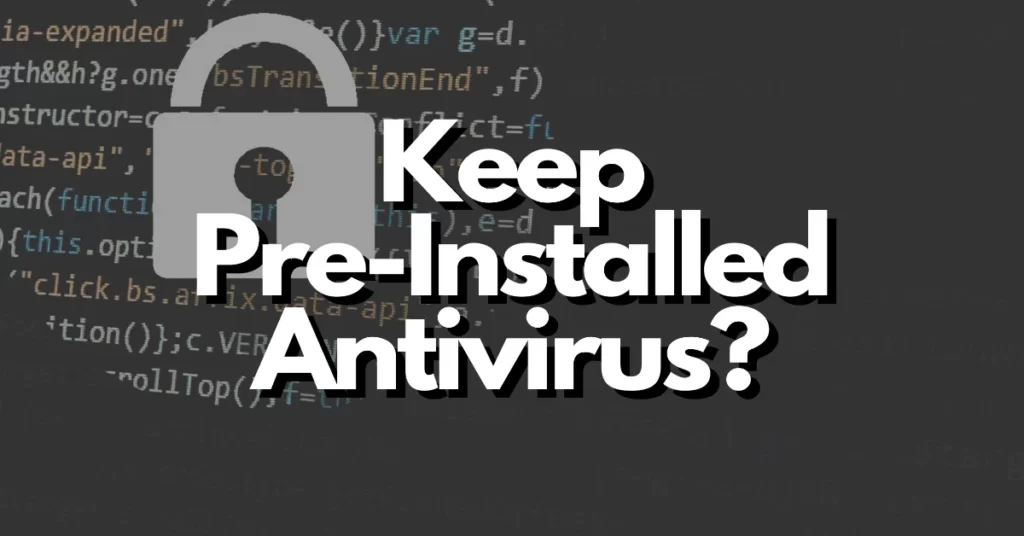When purchasing a new computer, one common dilemma users face is whether to stick with the preinstalled antivirus software or upgrade to a commercial antivirus program.
In this blog post, we will explore the considerations involved in this decision-making process. We will discuss the pros and cons of keeping the preinstalled antivirus, the benefits of upgrading to a commercial antivirus, and provide insights to help you make an informed choice that best suits your needs.
You can check out our recommended VPN provider SurfShark here.
Table of Contents
The Importance of Antivirus Software on New Computers:
Installing antivirus software on a new computer is crucial for maintaining a secure digital environment. New computers are susceptible to malware, viruses, and other online threats. Antivirus software acts as a protective shield, detecting and eliminating malicious programs that can compromise your system, steal personal information, or cause data loss.
With the constant evolution of threats, having up-to-date antivirus software ensures your computer is protected against the latest malware and cyber-attacks. By proactively installing antivirus software, you establish a strong defense against potential threats from the moment you start using your new computer.
Choosing the Right Antivirus: Factors to Consider:
Selecting the right antivirus software involves considering several factors. Firstly, assess the software’s detection and removal capabilities to ensure it can effectively identify and eliminate various types of malware. Compatibility with your operating system and device is also important. Evaluate the software’s user interface, ease of use, and additional features such as real-time scanning, web protection, or ransomware protection.
Consider the level of customer support and the frequency of updates provided by the antivirus vendor. Lastly, check reviews and independent lab test results to gauge the software’s performance and reliability in detecting and neutralizing threats.
Installing and Configuring Antivirus Software on a New Computer:
Installing and configuring antivirus software on a new computer is a straightforward process. Start by researching and selecting a reputable antivirus software provider. Download the installer from their official website and run the installation file. Follow the on-screen instructions to complete the installation. Once installed, perform an initial system scan to detect any existing threats.
Configure the software’s settings according to your preferences, such as enabling real-time protection or setting up scheduled scans. Ensure automatic updates are enabled to keep your antivirus software up to date with the latest virus definitions. Regularly run system scans and perform necessary software updates to maintain effective antivirus protection.
Best Practices for Maintaining an Effective Antivirus Protection:
Maintaining effective antivirus protection involves following best practices to ensure your computer remains secure. Keep your antivirus software up to date by enabling automatic updates or regularly checking for new updates manually. Regularly perform system scans to detect and eliminate any potential threats. Exercise caution when browsing the internet, opening email attachments, or downloading files from untrusted sources.
Be vigilant against social engineering attacks and phishing attempts. Additionally, keep your operating system and other software applications updated to patch any security vulnerabilities. By adhering to these best practices, you can maintain a robust and reliable antivirus protection for your computer.


Conclusion
In conclusion, the decision to keep the preinstalled antivirus on your newly purchased computer or upgrade to a commercial antivirus depends on various factors. While the preinstalled antivirus provides a basic level of protection, upgrading to a commercial antivirus can offer advanced features, better detection rates, and enhanced security.
Consider your specific requirements, the level of protection you desire, and your budget when making this decision. Furthermore, regularly updating the preinstalled antivirus and maintaining good security practices can help ensure optimal protection. Regardless of your choice, the key is to prioritize cybersecurity and adopt measures that safeguard your computer and data effectively.

